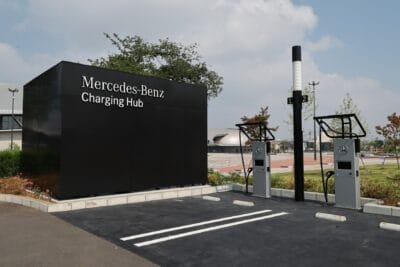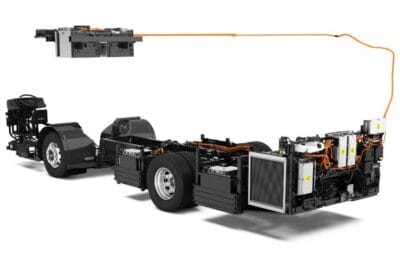Graz University to analyze charging via rail
As part of the RailCharge project at Graz University of Technology, a new solution is being worked on to use the railway as a mobile charging station for electric cars.
The premise of the project is to load electric cars on trains to cover most of their journey, where their batteries would be charged via the railway’s own power grid. From there, they would then continue the journey individually with a fully charged battery. According to TU Graz, this solution would have two advantages over the current development in e-mobility.
Instead of installing ever-larger batteries to increase the range, smaller batteries could be used instead, which would bring significant improvements both in the pricing of the vehicles and with regard to the environment. If the power grid of the railway or the braking energy of a train is used to charge the electric cars, this would also relieve the public power grid.
The project team is currently evaluating together with the transport planning company Verkehrplus for which applications RailCharge would really make sense. For example, due to the journey to the station and the loading and unloading time, there is probably comparatively little interest in replacing a 45-minute commuter route with a train with a charging function. However, there should already be some potential for longer holiday train journeys, generally routes with a duration of at least three hours. In order to be able to implement the RailCharge idea, some technical solutions have already been developed or at least designed.
In cooperation with the project partner Easelink, a charging solution has been developed in which a retrofittable trunk on the underside of the electric car lowers itself onto a charging platform on the floor of the train carriage. Together with SSC Railtech, the wagon design itself was also rethought.
For the next step in the project, TU Graz describes the implementation of the developed concepts in the real world: “What I personally have in mind would be a technology demonstrator in the form of a wagon travelling on a test track. Perhaps also a route with a border crossing,” says Armin Buchroithner from the Institute of Electrical Measurement and Sensor Technology, who is leading the RailCharge project on the TU Graz side. “It would be nice to be able to demonstrate that this works for a journey from Vienna to Dresden or Leipzig, for example. Essentially, the aim is to show that it is possible to charge vehicles of different topologies on rail and they arrive fully charged.”





0 Comments